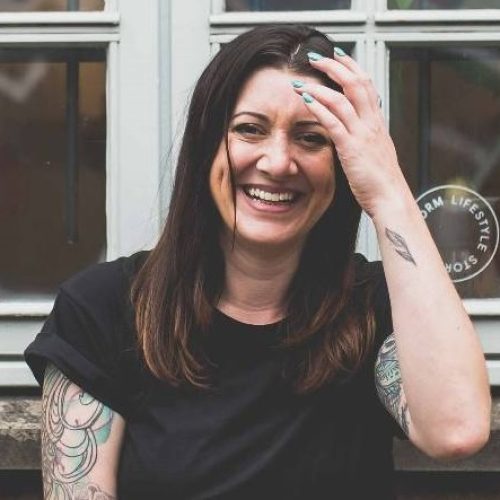
In 2020 millennials made up 40% of all consumers, and, according to a Deloitte survey, 40% of this demographic believe that the goal of business shouldn’t be a healthy bottom line, but contributing to society.
A report by global think tank Wunderman Thompson showed that 92% of consumers around the world want to be more sustainable and 70% will pay more for products and services if they protect the environment, so it can act as a valuable sales tool for businesses wanting to be a force for good.
When it comes to a business’s bottom line, in the UK alone, B Corp-certified brands grew 28 times faster than the national economic growth rate of 0.5% in 2018, according to the Office for National Statistics.

If you’re unfamiliar with B Corp certification, here’s the detail: B Lab is a non-profit organisation that has created the B Impact Assessment, an online tool that identifies the different areas a business has an impact. If the business meets the performance requirements, it can then apply for B Corp Certification, which shows that a business gives as much consideration to its social and environmental impact as it does to its financial returns. It acts as a simple way for customers, clients, and employees to see the true values of a company and that it takes sustainability seriously.
In the last 12 years the global community of B Corps has grown to over 4,000 with certified B Corps in 75 different countries across 150 different industries, so it’s a diverse group. Worldwide names such as Patagonia, Ben and Jerry’s, and Allbirds are just some famous B Corps.
So what is the best way for a business to communicate its sustainability impact and values to its customers?
Sustainability means meeting our current needs without compromising the ability of future generations to meet their own needs. In addition to natural resources, we also need social and economic resources to survive. Sustainability is not just environmentalism.
Sustainability is a way for us all, both as businesses and customers, to ensure that future generations have access to a better future as a result of our actions.
For businesses, sustainability is looking at how they they can balance their social and environmental impact with the need to be profitable. The easiest way to start the process is to look at how they can implement a sustainability strategy within their own company and values.
One way to do this is to assess and measure their existing impact using an existing framework to see what areas they can focus and work on. This is where B Corps and the B Impact Assessment come in, as a way to identify a businesses impact and areas that can be improved.
Since March 2020, the average daily users of B Lab’s Impact Assessment tool has doubled in the UK and annual certifications have climbed 40%. The movement is growing as more and more businesses look at how they can not just look after the shareholders of the company, but also the stakeholders.
It is this 21st century thinking, the independent analysis of the assessment and the transparency of the process (all scores are displayed on the B Corp Website) which make it a clear way for customers to see how the businesses they buy from operate.
It helps businesses attract talent that cares about the same values, build relationships with other businesses as well as amplify their voice and show that they stand by their mission.
While the B Impact Assessment is a tool in helping business become more sustainable, it’s important for business leaders to know that the values they want to communicate need to come from an authentic place. Sustainability is a process not a solution. Businesses need to work on the quality of what they design and create – and this can often mean changing systems and processes within the company.
Recognising that progress is something to work towards rather than a final destination is key for businesses wanting to pass the B Corp Assessment. It may take businesses a while to get to the performance requirements needed to become a B Corp, but by embedding it into their future planning it allows them to ensure they are resilient in growing into strong and impactful organisations.
A good starting point for a business is to contact a sustainability professional for support in choosing the right plan for them. Educate themselves on the frameworks available, such as B Corp Certification and larger initiatives like the United Nations Sustainable Development Goals.
A sustainability professional can help a business on measuring and creating impact goals that are relevant to them. They can advise on the best framework and certification processes for that business, and help create a clear and actionable plan to move the business forward. They can also support the way the business can communicate that to their stakeholders.
No matter what the industry or sector, being sustainable and profitable go hand in hand.

Hannah Cox
Sustainability consultant



